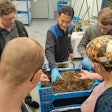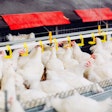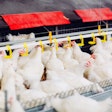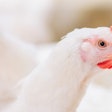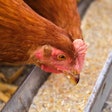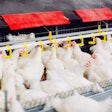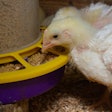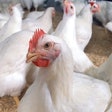More than 100 customers representing 13 African countries attended the largest-to-date Cobb Africa technical seminar. The program covered breeders, hatcheries, broilers, nutrition and poultry health matters, and included a talk by Yum! Brands on supplying chicken to the restaurant trade in Africa.
The school was run on Irvine’s Zimbabwe premises.
The seminar is held every second year and this fourth event attracted delegates from as far as Ethiopia, Nigeria, Malawi, Cameroon, Uganda, Kenya, Malawi, Mozambique, Mauritius, Tanzania, Botswana and South Africa as well as Zimbabwe.
Director of Cobb Africa, Patrick Murphy, said Cobb is making great strides in the African market, showing tremendous sales growth over recent years — as indicated by a market share exceeding 50 percent across the Sub Saharan territory. “This increase is thanks to the growth of Cobb Africa’s current clients as well as new entrants into the market,” he said.
Specialist speakers from Europe, Brazil and South Africa gave presentations on biosecurity, sampling techniques, problem solving on breeder farms, male management and recent Cobb incubation trials – all structured to offer solutions to the particular challenges experienced in Africa.
The presentations were followed by practical demonstrations on house preparation and brooding setup, dark out and mechanically ventilated houses, tours of a hatchery and processing plant, and instruction on performing post mortems.
During the seminar an awards ceremony and dinner were held to reward customers for improved performance and achieving top results. Awards went to Agrocam, Cameroon, for most eggs per hen housed, Novos Horizontes, Mozambique, for most improved farm, and Euro Poultry, Tanzania, for best newcomer.
David Irvine, chief executive of the Irvine’s Group, welcomed all the delegates while Pieter Oosthuysen, Cobb regional technical manager for Africa, spoke on the value of keeping records and submitting data to Cobb Europe for analysis, interpretation and benchmarking. Craig Irvine, director of Irvine’s Africa, talked about the value of upgrading pullet rearing housing to blackout with mechanical ventilation - necessary to enable African producers to be more efficient and compete with imported chicken meat from Brazil and elsewhere.






